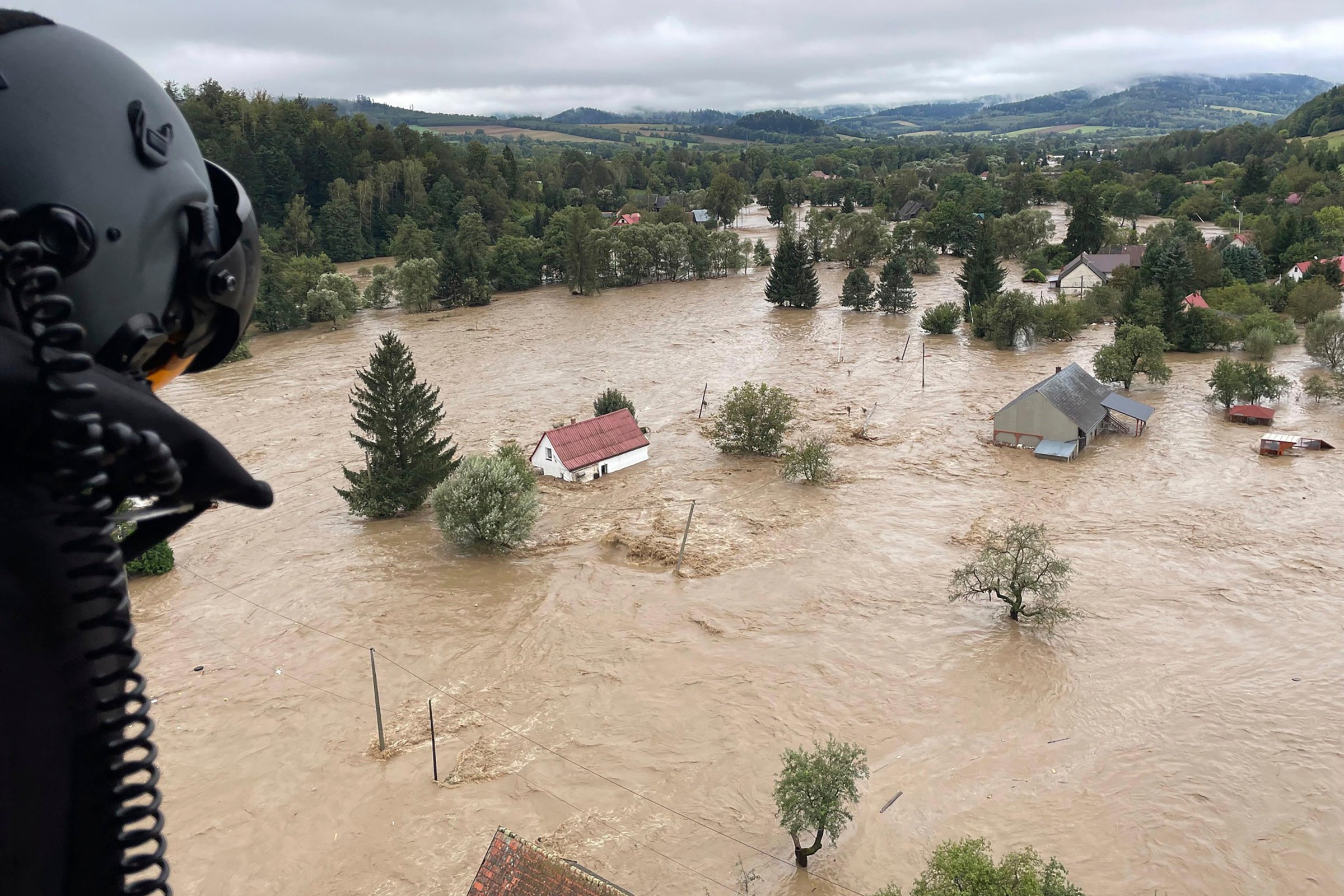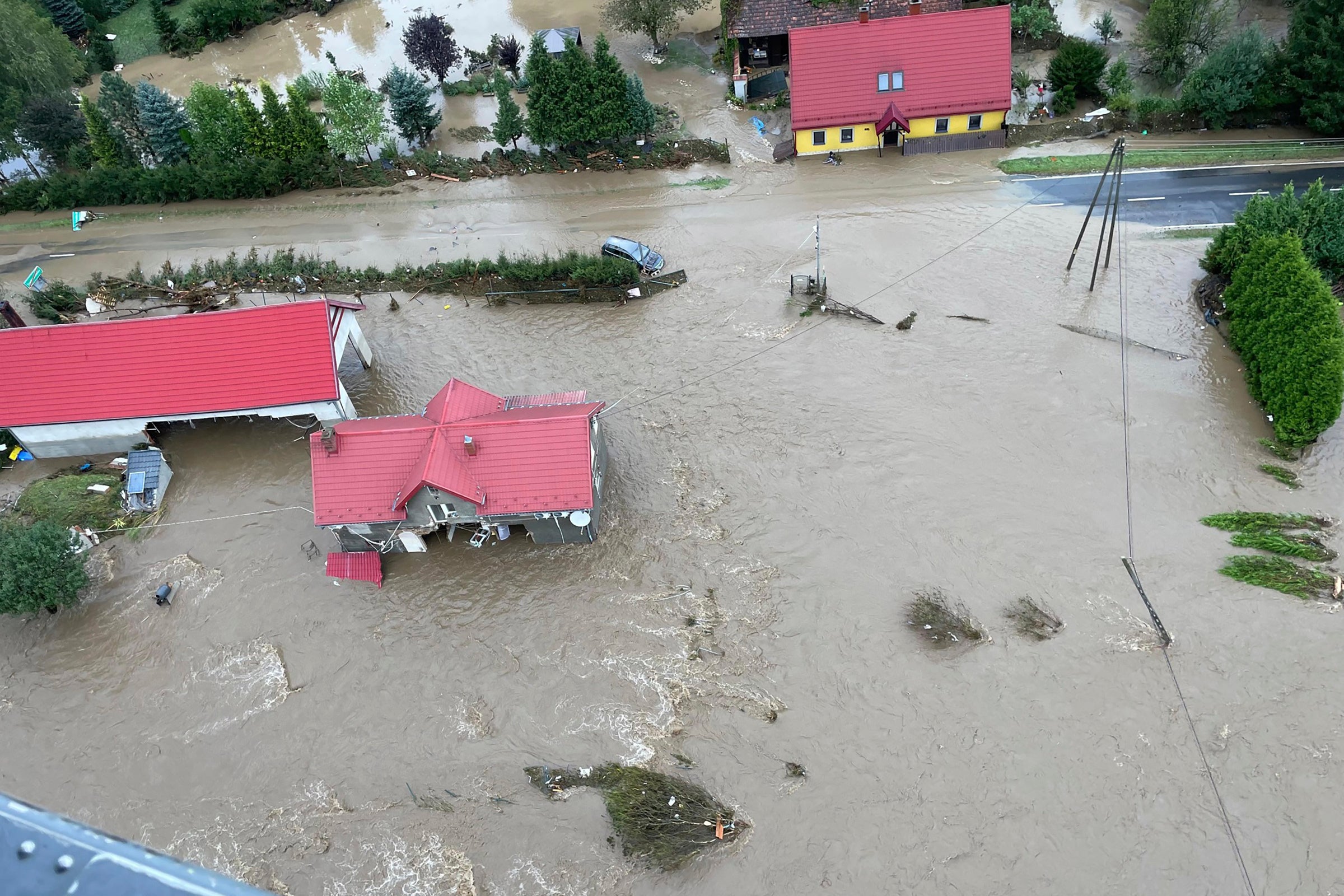Budapest and Wroclaw reinforce river banks ahead of more flooding
A state of natural disaster has been declared across the affected region of southern Poland

Your support helps us to tell the story
From reproductive rights to climate change to Big Tech, The Independent is on the ground when the story is developing. Whether it's investigating the financials of Elon Musk's pro-Trump PAC or producing our latest documentary, 'The A Word', which shines a light on the American women fighting for reproductive rights, we know how important it is to parse out the facts from the messaging.
At such a critical moment in US history, we need reporters on the ground. Your donation allows us to keep sending journalists to speak to both sides of the story.
The Independent is trusted by Americans across the entire political spectrum. And unlike many other quality news outlets, we choose not to lock Americans out of our reporting and analysis with paywalls. We believe quality journalism should be available to everyone, paid for by those who can afford it.
Your support makes all the difference.Sandbags have been dropped from military helicopters to reinforce river embankments and evacuated residents as the worst flooding in years spread on Tuesday to a broad swath of Central Europe, taking lives and destroying homes.
Heavy flooding has affected a large part of the region in recent days, including the Czech Republic, Slovakia and Austria. There have been at least 16 deaths reported in the flooding, which follow heavy rainfall across the region.
Other places are now bracing for the flood waves to hit them, including two central European gems: Budapest, the Hungarian capital on the Danube River, and Wroclaw, a city in southwestern Poland on the Oder River, its old town filled with architectural gems.
Hungary's government of Prime Minister Viktor Orbán deployed soldiers to reinforce barriers along the Danube, and thousands of volunteers assisted in filling sandbags in dozens of riverside settlements.
In Budapest, authorities closed the city’s lower quays, which are expected to be breached by rising waters later in the day. The lower half of the city’s iconic Margaret Island was also closed.

In Wroclaw, firefighters and soldiers spent the night using sandbags to reinforce river embankments. The city zoo, located along the Oder, appealed for volunteers to fill sandbags on Tuesday morning.
“We and our animals will be extremely grateful for your help,” the zoo said in its appeal.
The city said it expected the flood wave to peak there around Friday, though some had predicted that would happen sooner. Poland's Prime Minister Donald Tusk met with a crisis team early Tuesday and said there are contradictory forecasts from meteorologists.
Tusk's government has declared a state of natural disaster across the affected region of southern Poland.
To the south of Wroclaw, residents spent the night fighting to save Nysa, a town of 44,000 people, after the Nysa Klodzka River broke its banks the day before. The town mayor Kordian Kolbiarz said 2,000 “women, men, children, the elderly” came out to try to save their town from the rising waters, forming a human chain that passed sandbags to the river bank.
“We simply … did everything we could," Kolbiarz wrote on Facebook. "This chain of people fighting for our Nysa was incredible. Thank you. We fought for Nysa. Our home. Our families. Our future.”
In the Czech Republic, waters have been receding in the two hardest-hit, northeast regions. The government approved the deployment of 2,000 troops to help with clean-up efforts. The damage is expected to reach billions of euros.
The Czech government also scrambled to help local authorities organize regional elections on Friday and Saturday as several schools and other buildings serving as polling stations have been badly damaged. However, a planned evacuation of some 1,000 in the town of Veseli nad Luznici could be postponed as the waters had not reached critical levels so far.